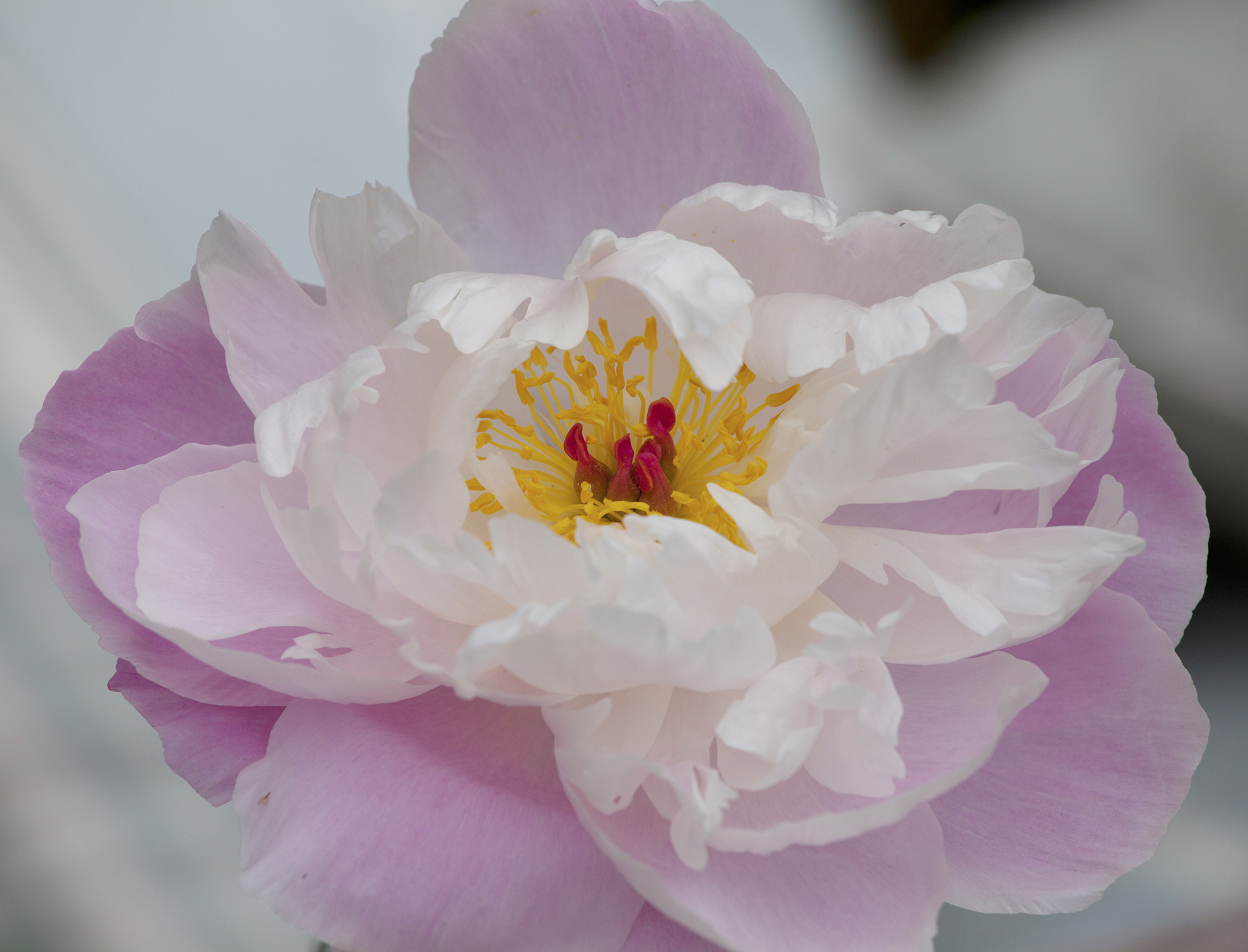Peonies not blooming? Here’s why
Discover the reasons why your peonies aren’t blooming, and the solutions to the problem


Design expertise in your inbox – from inspiring decorating ideas and beautiful celebrity homes to practical gardening advice and shopping round-ups.
You are now subscribed
Your newsletter sign-up was successful
Want to add more newsletters?
Peonies that aren’t blooming can be a huge disappointment. Their voluptuous colorful blooms make for a spectacular display in the backyard in late spring and early summer, so a lack of flowers is a huge letdown.
There are a variety of reasons why peonies don’t bloom including gardeners not being in the know about how to grow peonies and when to plant peonies, plus issues such as extreme weather, and pests and diseases, so it’s important to get savvy about the issues that can affect these flamboyant flowers.
To help you identify what’s causing the no-shows in your yard, we’ve put together an expert guide.
Why won’t my peonies bloom?
‘Peonies can be quite stubborn when it comes to blooming,’ says Davin Eberhardt, CEO of Nature of Home. ‘Reasons for this may include a lack of sunlight, incorrect planting, improper fertilizing, or plants that are too young.’
We’ve covered these issues below along with the rest of the possibilities as to why peonies aren’t blooming.
Peonies not blooming because they’re in the shade
A major cause of peonies not blooming is a lack of sun. Peonies like full sun, although some will grow in dappled shade. ‘If your peonies are not budding, a possible reason is that they are planted where there’s too much shade and are not able to get at least six hours of direct sunlight,’ says Joe Taylor, founder of home improvement and garden publication PlumbJoe.
Peonies not blooming because they’re planted too deep
It’s vital not to plant peonies too deep. If they are, the peony can still have healthy foliage, but it won’t produce many – or perhaps not even any – flowers.
Design expertise in your inbox – from inspiring decorating ideas and beautiful celebrity homes to practical gardening advice and shopping round-ups.
So how deep should you plant a peony? The crown should be no more than 2in (5cm) below the surface of the soil when you put peonies in. Be cautious when backfilling that the root doesn’t end up deeper than this, and watch out for this when adding mulch, too.
Peonies not blooming due to an excess of nitrogen
Another reason why peonies aren’t blooming? ‘You are fertilizing your peonies more than necessary,’ says Joe Taylor.
Peonies planted in soil that is rich and fertile don’t need to be fed, but otherwise a yearly feed with a balanced general fertilizer is a good idea. However, if you use a fertilizer with too much nitrogen, this can encourage the growth of foliage but result in fewer buds. Look for a fertilizer with a nitrogen, phosphorus, potassium ratio of 5-10-10, for example, to keep peonies blooming.
If you’re already using a fertilizer suitable for peonies, you might want to do a soil test through a local extension office, and get advice on amending the soil.
Peonies not blooming as they’re newly planted
Another reason why peonies aren’t blooming very well could be because they are new to your garden. Peonies take three to four years to flower well, so yours may just need more time. Peonies do live a long time, though, so your patience at first will be rewarded in the long term.
Peonies not blooming after transplanting
While peonies can be transplanted (contrary to myth), they can take time to start flowering again, so this could be the reason yours aren’t blooming. Make sure to move them when they are dormant in fall, be careful not to disturb the rootball, and get them into their new position as soon as possible.
Peonies not blooming after a dry spring
In summer, peonies are quite drought-tolerant, but they do need plenty of water in the spring when flower buds are forming, and a lack of it could be the cause of peonies not blooming as they should. Keep a watch on the soil in the spring and don’t let it dry out.
Peonies budding but not blooming
It may be that your peonies are budding but the buds aren’t opening into flowers and, if that’s the case, there are a few different possible explanations for why you’re missing out on their extravagant blooms.
Weather
‘If your peonies have buds that are not opening, a reason why may be that your peonies have recently experienced a hard freeze,’ says Joe Taylor.
If there’s a late frost just before they’re going to bloom, peony buds can be damaged. While you can’t do anything if this has already happened, it’s worth keeping track of the weather forecast and, if a freeze is threatened, protecting peonies with agricultural fleece supported on stakes.
Fungal disease
Although peonies are low maintenance as a rule, it is possible for fungal diseases to affect the buds. To prevent this, deadhead peonies in spring, and cut back foliage in fall.
Pests
Thrips can feast on peony buds – as well as the leaves – in spring deforming the buds. Unfortunately, you’re unlikely to see them before they damage the plant. Peonies do attract acts to the nectar produced on the buds. However, if you do see ants on peonies then do not panic and try to get rid of them, as the presence of ants can protect the buds from thrips.

Sarah is a freelance journalist and editor. Previously executive editor of Ideal Home, she’s specialized in interiors, property and gardens for over 20 years, and covers interior design, house design, gardens, and cleaning and organizing a home for Homes & Gardens. She’s written for websites, including Houzz, Channel 4’s flagship website, 4Homes, and Future’s T3; national newspapers, including The Guardian; and magazines including Future’s Country Homes & Interiors, Homebuilding & Renovating, Period Living, and Style at Home, as well as House Beautiful, Good Homes, Grand Designs, Homes & Antiques, LandLove and The English Home among others. It’s no big surprise that she likes to put what she writes about into practice, and is a serial house renovator.